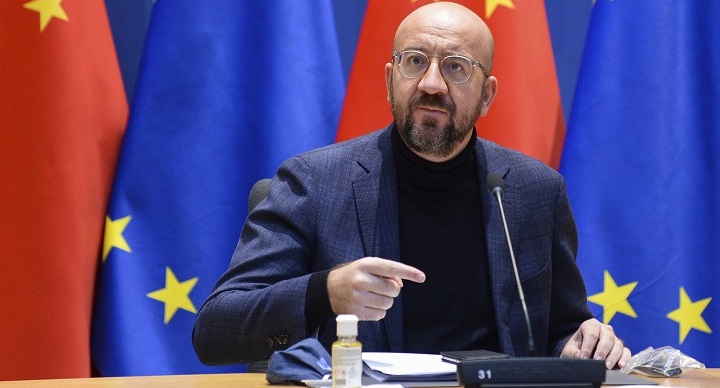
The Comprehensive Agreement on Investment (CAI) just signed between EU and China on investment is not the solution to the commercial and economic problems, it could be a step forward or become a tripwire for bigger problems around China and the world. In any case proves that China is not a secondary regional issue, but a massive global question that call everybody to rethink many problems.
The CAI is very controversial because it happens against strong objections in the United States and in the public opinion in Europe, as there are many problem areas: effective verification mechanisms are lacking and many investment areas are still closed or semi-closed. There is also progress in important sectors such as the automobile industry, telecommunications, and finance. The latter is especially important because Chinese finance today is particularly backward and closed, and this also makes it more difficult to reach full convertibility of the RMB.
The real point appears political. The EU wanted to push the agreement forward by the end of the German presidency and a few days before Joseph Biden’s beginning of his tenure as US president on January 20.
Biden had sent signals that essentially told the EU not to rush and sign the CAI now. Moreover, the EU made it clear that it wanted to collaborate with the new Biden presidency after four years of difficult co-existence with the Trump presidency.
It is not clear why the EU despite all of this went ahead and signed but at least we can look at the prima facie evidence. The EU signed it in the last days of the Trump presidency, so it appears a toxic European response to the four years of often strained relations with the US. In this period, the US tried to wrest from China a bilateral treaty, much broader than the current European one. The US failed, but if it had succeeded, it might have left Europe in a bad position.
Now the EU-China pact actually signals that Europe doesn’t want to be a mere puppet in negotiations between the US and China. The EU has its own policy and its own interests that it will want to pursue.
That said, this agreement is not final, in fact it isn’t much different from a comprehensive Memorandum of understanding. That is, the EU is not allying with China and declaring war on the US. The CAI still has to be discussed in parliament and approved, and therefore it can also be rejected.
In fact, the agreement can become perhaps not so much a platform for the entry of European companies into China but a basis for discussion of the new US-EU relationship.
Europe is backward in many aspects of the new generation of Hi-Tech, but it is still a manufacturing superpower, while the US has lost many manufacturing industries. The US has an old and rusty dispute over excess German exports. These are all elements that could be part of a talks with America, while the EU has the card of the Chinese agreement to play.
Perhaps, also in the future, the US could use the agreement between the EU and China as a stepping stone for its own agreement with China, or the current CAI could eventually be rejected in favor of a new US-EU pact. The situation remains very confused.
What seems unlikely to me at the moment, but certainly not impossible, is that China will succeed in pitting the US and the EU against each other and therefore, have the trans-Atlantic dispute emerge as the dominant element of global politics.
This is unlikely because the US and the EU are united by a set of values, economic interests, and the military alliance of NATO. So perhaps it is easier for the US and the EU to find a way to square the many problems that have accumulated on the two sides of the Atlantic since the end of the Cold War.
But a deeper rift is not impossible in the dream of a new, more promising bilateral relationship with China. There are many 20-year marriages that end because he or she flees with the flame found yesterday at the bar. But there are also many marriages that become stronger precisely because they have overcome a passing flame, and Europeans, perhaps more than Americans, are used to live with passing flings.
Certainly, China has no interest in exasperating its tensions with the US or even in complicating the relationship between the US and the EU. China’s long-term interest is to continue its development and for this it needs a good relationship with both the US and the EU which together make up about half of the global GDP. If China is less than careful it is to turn this, which is certainly a diplomatic success, in the fuse that kindles further global tensions.
On the positive side, this can be a demonstration of China’s willingness to take steps forward. The underlying problem remains how big these steps are and how fast they come.
But of course, the game is far from over. We are only at the first moves.






Non posso che essere d’accordo con il commento di N.C. da Silva. È giunto il momento per l’Europa di rompere la sua sottomissione alle 5 grandi orecchie e decidere in base ai propri interessi
Let’s hope this is a step towards Europe freeing itself from American domination. The future for Europe lays in a partnership with Russia (Lisbon to Vladivostok) capable of stopping both the US and China dominating the rest of the world. But to do this Europe must unite politically, not as a federation but as a Confederation of Sovereign States which will make the subsidiarity principle in Europe a reality.